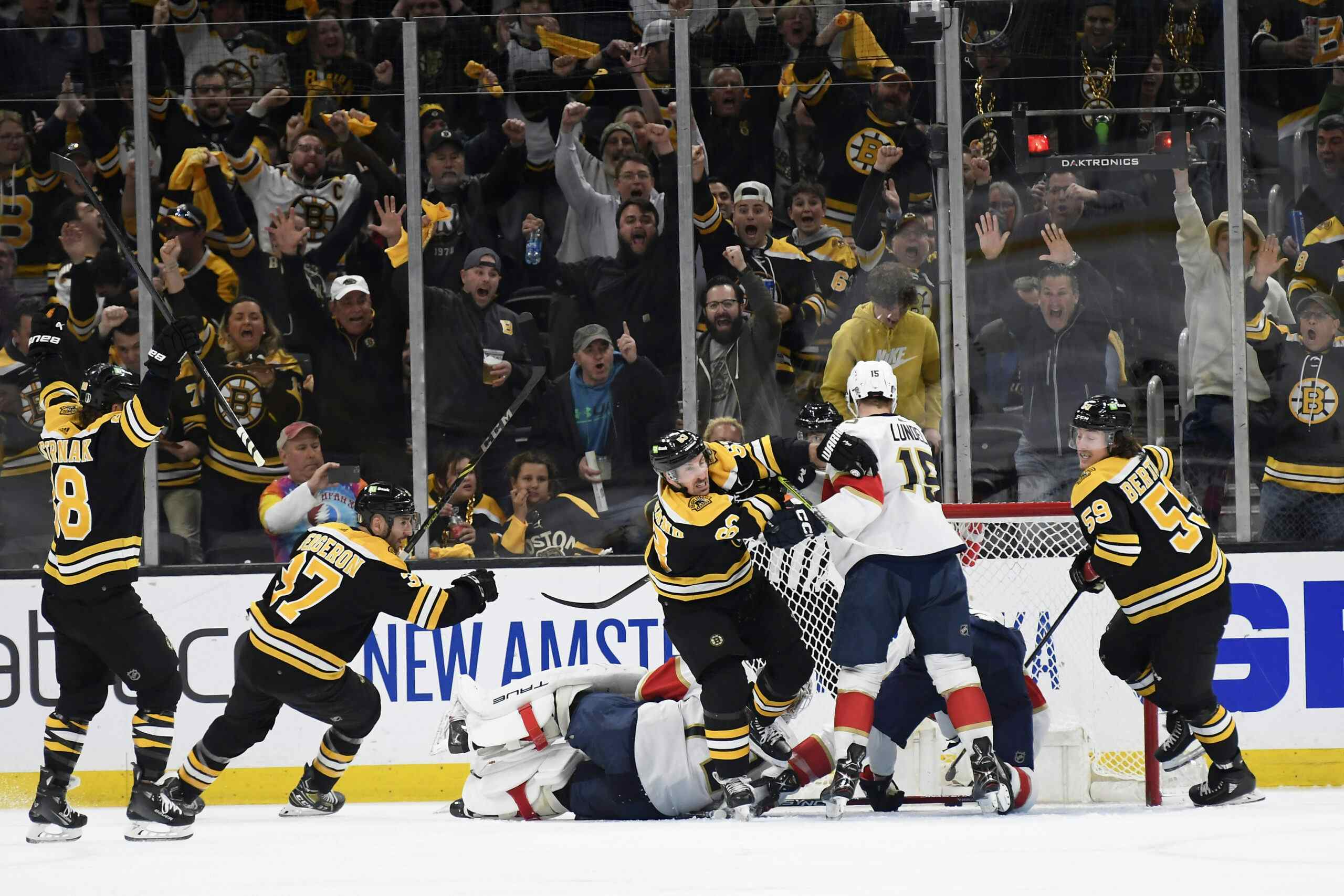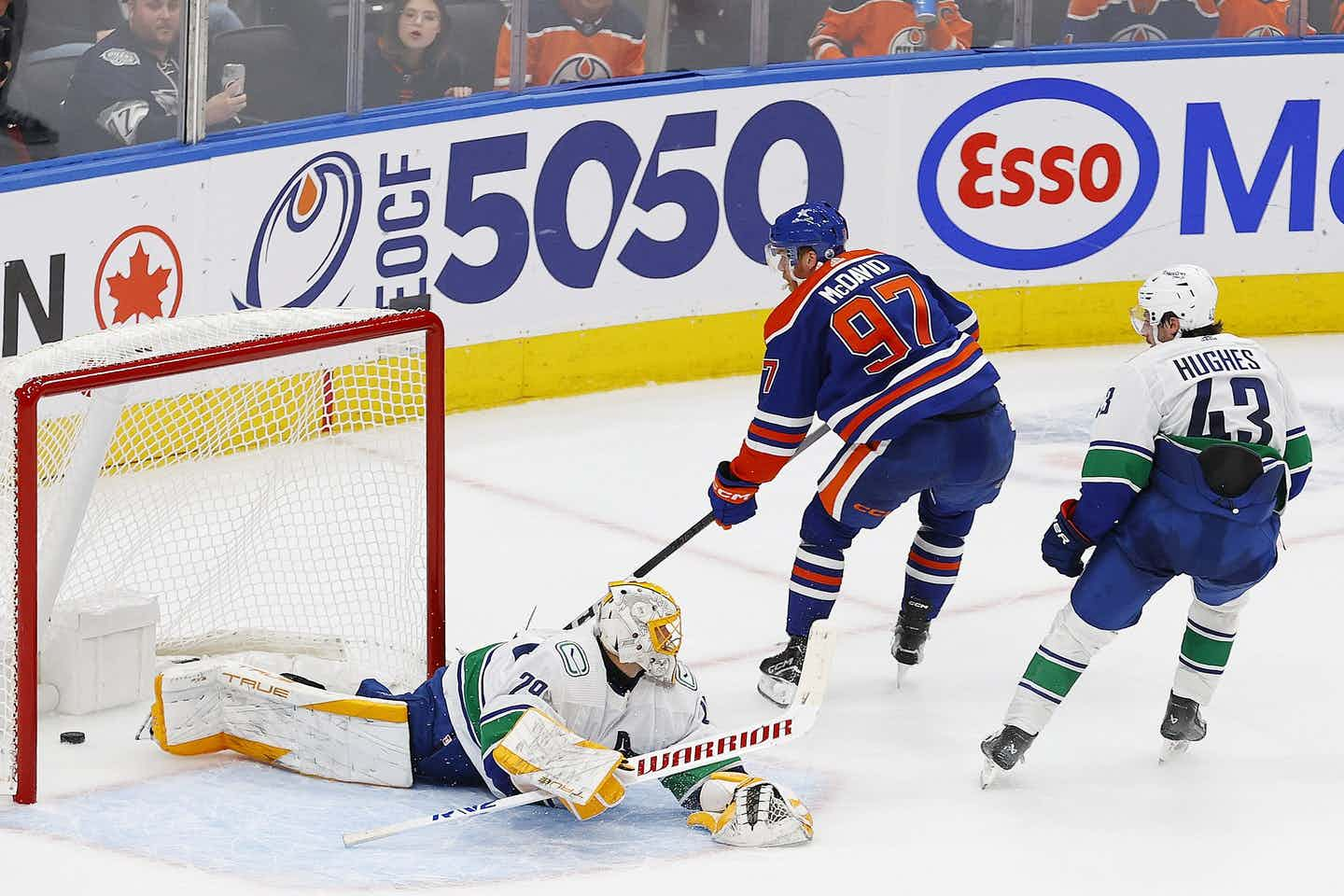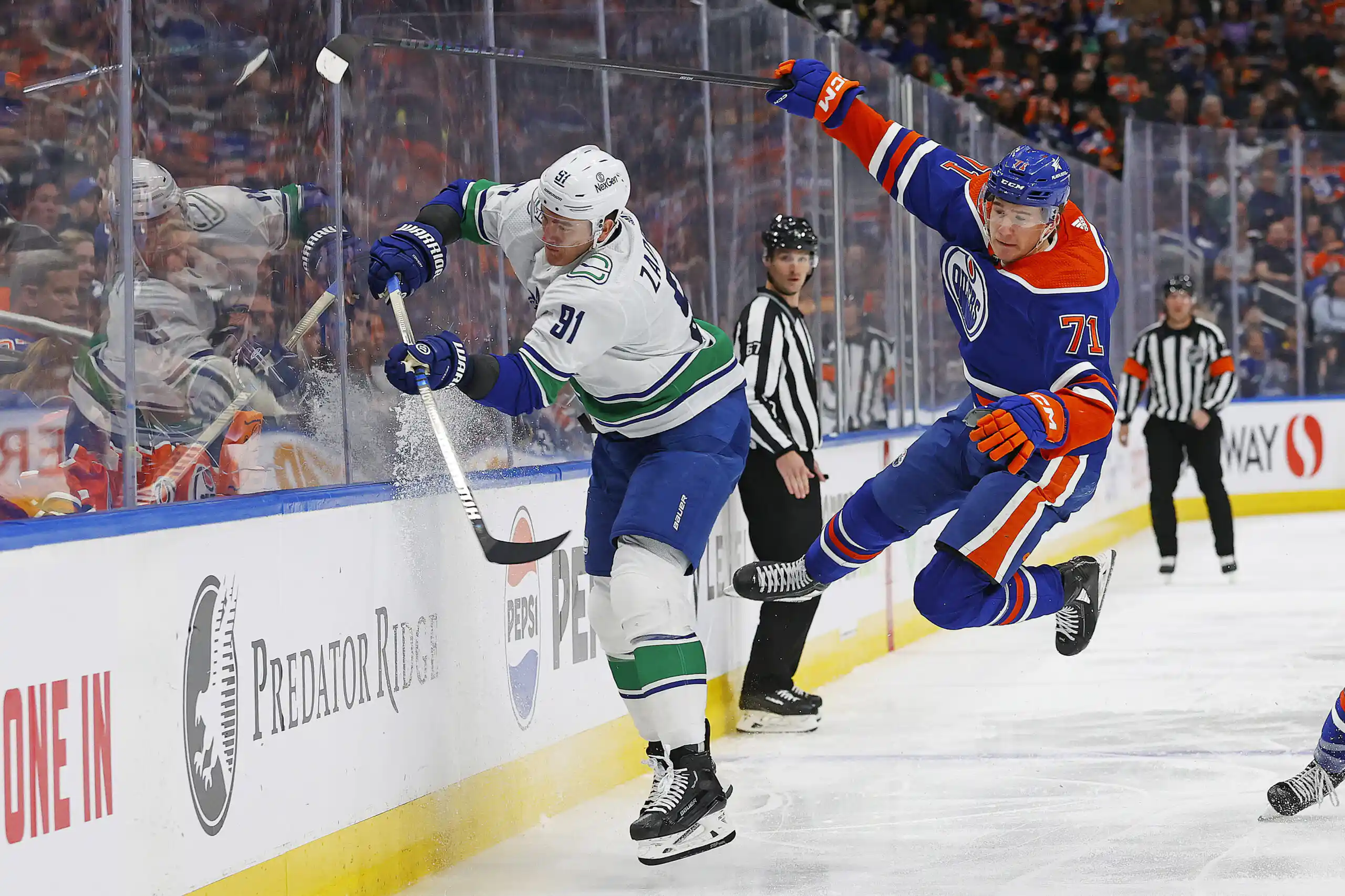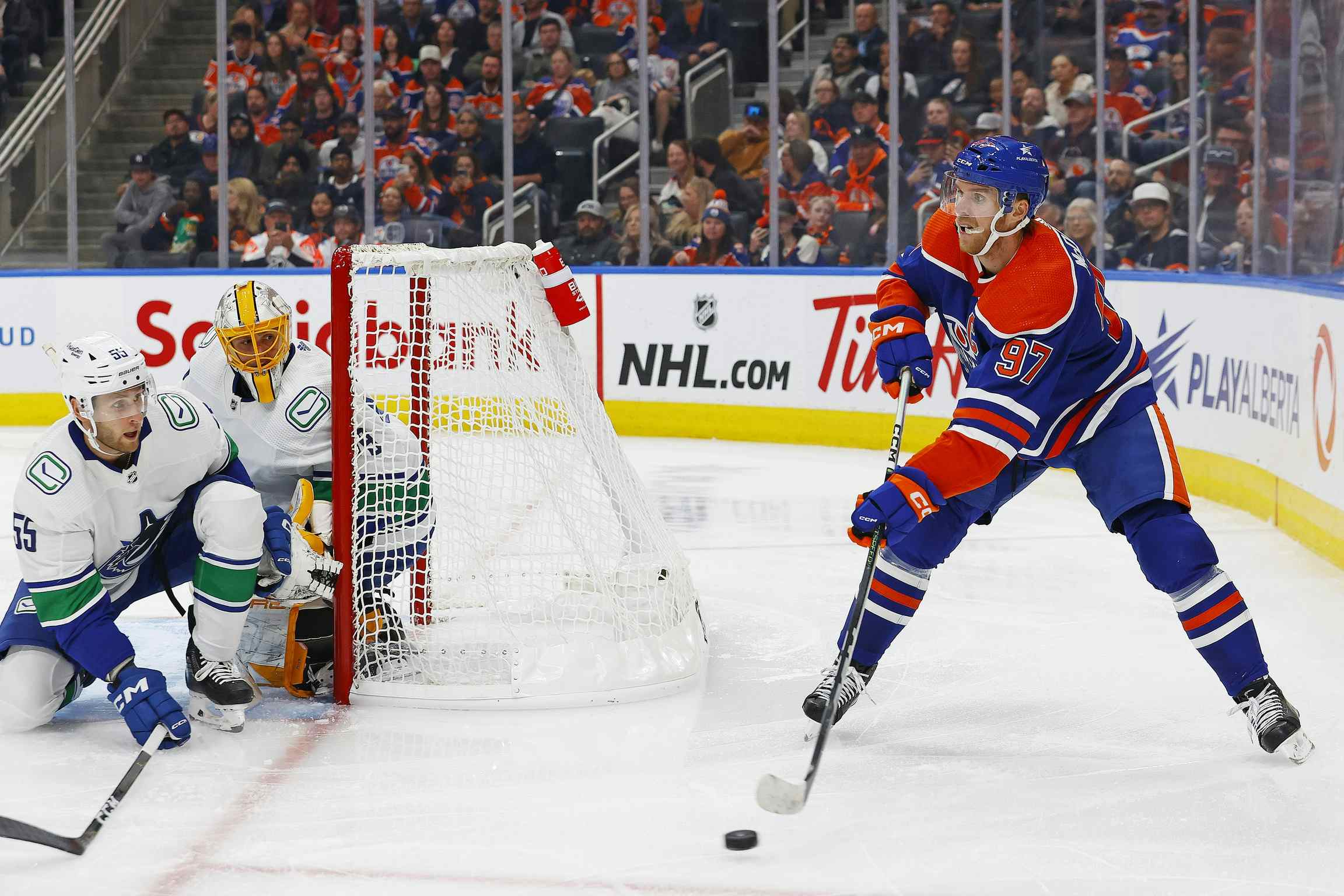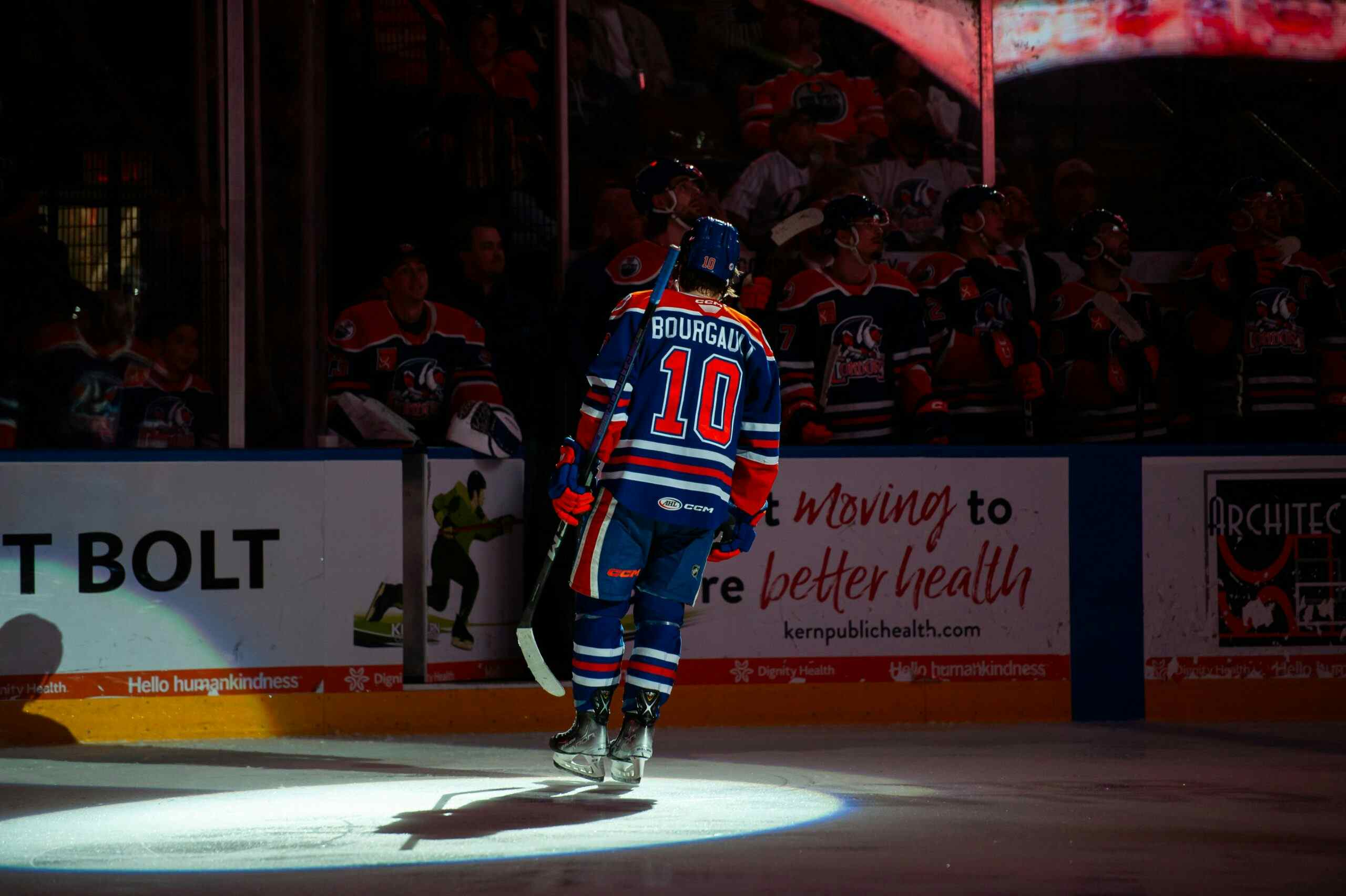Game One Could Decide Series

By Jason Gregor
3 years agoWe haven’t seen a best-of-five series in the first round in the NHL since 1986. For seven years, 1980-1986, the NHL’s first round was a best of five. The best-of-five first round series was added when the league expanded to 21 teams.
In previous years there were no best-of-fives. However, between 1975 and 1979, when 12 teams made the playoffs, the first round was a best-of-three, with the four division winners getting a bye. Prior to that, from 1968-1974, the playoffs were three rounds of best of sevens. And from 1943-1967 it was two rounds of best-of-seven. Prior to 1943 the playoffs varied, including a very odd format that had the #1 and #2 seed get a bye in the first round, and then play each other in a best-of-seven in the second round while the lower seeds played each other in best of threes. That happened in the late 1930s and up until 1942.
In fact, 1938 was the last time, prior to 1980, that the NHL had best-of-five series.
Now that we are caught up on playoff history, let’s look at this year’s unique format. I think it is inaccurate to suggest this year’s Cup winner will have an asterisk because of this format. I don’t buy it. Yes, this format is unique, but teams will be playing more playoff games than ever. There will be no fans. They are living in a hotel the entire time. There is no travel, except for arriving in the bubble on July 26th, and then the two eastern teams flying to Edmonton before the conference final. Players should be more rested physically than ever before so the pace, in theory, will be quicker. However, teams might become fatigued mentally by living in the bubble for two months.
I see no reason why there should be a negative connotation connected with the 2020 playoffs. If anything it will be more difficult than a normal Stanley Cup run.
GAME ONE IS MASSIVE…

Mar 5, 2020; Chicago, Illinois, USA; Edmonton Oilers right wing Kailer Yamamoto (56) scores a goal against Chicago Blackhawks goaltender Corey Crawford (50) during the third period at United Center. Mandatory Credit: Kamil Krzaczynski-USA TODAY Sports
Looking back at the seven-year history of five-game series, it is apparent that winning game one greatly increases your chances of winning the series.
Of those 56 five-game series, the teams who won game one went 49-7. A whopping 87.5% of game one winners won their series.
In 1980 game one winners were 7-1.
In 1981 they were 8-0.
In 1982 they were 6-2.
In 1983 they were 7-1.
In 1984 they were 7-1.
In 1985 they went 6-2.
In 1986 they were 8-0.
In 1981 they were 8-0.
In 1982 they were 6-2.
In 1983 they were 7-1.
In 1984 they were 7-1.
In 1985 they went 6-2.
In 1986 they were 8-0.
In 1980 and 1981 the league had a 1 v. 16, 2 v.15, and so on, format. There were no upsets in 1980, but in 1981 the 14th seed Edmonton Oilers swept #3 Montreal Canadiens, while the 13th seed New York Rangers defeated the fourth seed LA Kings in four games.
From 1982-1986 the first round went to a 1v.4 and 2v.3 in each division format.
Five of the seven teams who lost game one needed five games to win their series.
1980 Boston Bruins (fourth seed) lost game one, but won games two, four and five.
1982 Quebec Nordiques lost game one to Montreal, but won on the road in OT in game five.
1982 New York Rangers lost game one at home to Philly, but then won the next three.
1983 Chicago Blackhawks last game one at home to St. Louis, but then won three straight.
1984 Minnesota North Stars lost game one at home to Chicago, but won games two, three and five.
1985 Montreal Canadiens lost game one at home to the Bruins, but won games two, three and five.
1985 New York Islanders lost game one on the road in Washington, but won games three, four and five to win series. They are only team to lose the first two games and win series in five games.
1982 Quebec Nordiques lost game one to Montreal, but won on the road in OT in game five.
1982 New York Rangers lost game one at home to Philly, but then won the next three.
1983 Chicago Blackhawks last game one at home to St. Louis, but then won three straight.
1984 Minnesota North Stars lost game one at home to Chicago, but won games two, three and five.
1985 Montreal Canadiens lost game one at home to the Bruins, but won games two, three and five.
1985 New York Islanders lost game one on the road in Washington, but won games three, four and five to win series. They are only team to lose the first two games and win series in five games.
Of the 56 series, 27 of them were sweeps, 20 needed four games and nine needed five games, which equates to 48.2% being sweeps, and 16% went the full five games.
The other aspect to consider is the mental factor. The Penguins and Canadiens both lost their exhibition game, and whoever loses game one in their series will have been in the bubble for a week and are now 0-2. If you are the Habs, the 12th seed, and you are winless in first week in the bubble, are you mentally beaten after losing game one?
Same with the Rangers/Hurricanes series. Both of them lost their exhibition game and I think that makes game one of their series even more important.
FIVE V. SEVEN…

Feb 11, 2020; Edmonton, Alberta, CAN; Edmonton Oilers forward Leon Draisaitl (29) and Chicago Blackhawks defensemen Duncan Keith (2) look for a loose puck during the third period at Rogers Place. Mandatory Credit: Perry Nelson-USA TODAY Sports
I looked at the previous seven NHL playoffs to compare the difference of winning game one in a best-of-seven.
In those 56 series, the team who won game one went on to win the series 41 times (73.2%). A healthy drop from the 87.5% of those winning game one in a best-of-five.
The biggest difference was the drop in series sweeps. Only nine (16%) were sweeps compared to the 48.2% in best of fives.
For fun, I also looked at the second, third and fourth rounds the previous seven seasons, and winning game one in those games was even less important than in the opening round.
Of those 49 series, the winner of game one won 32 (65.3%) of those series.
We are all excited for the playoffs to begin on Saturday, but the angst among teams and fans should be higher. History has proven that the eight teams who lose their qualifying game on Saturday and Sunday have a 12.5% chance of coming back and winning their series.
Ironically, those are the exact same odds the eight teams who lose the series will have of winning the draft lottery and selecting first overall in the 2020 NHL draft.
RECENTLY BY JASON GREGOR
Recent articles from Jason Gregor

